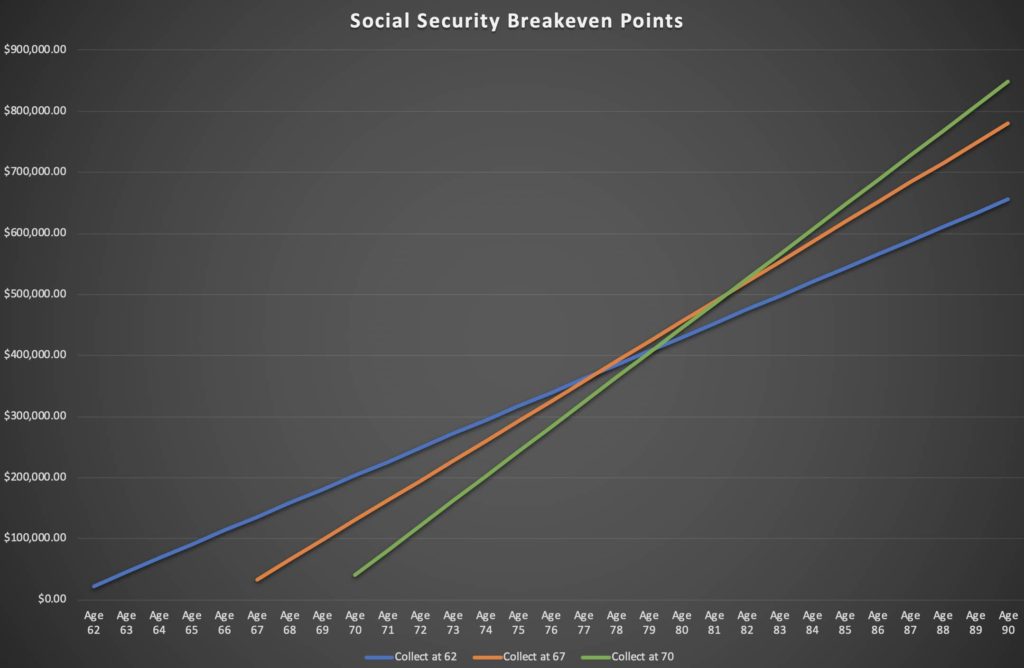Social Security is a program designed to take care of you during retirement but has it ever dawned on you that it may be racially biased?

Disclosure
This article will take a little departure from my usual pure financial planning advice. Politics and race are involved, so if either type of discussion makes you cringe please just read the next paragraph and you’ll get the gist of it. While I do have strong political views as a libertarian, the point of this post is not to insert my own political ideology. Rather, the point is to just talk about an issue I see that I don’t see anyone else talking about. Every person reading this will have an opinion based on their own political beliefs, and that’s fine! Just make sure you respect the fact that others are allowed to have a differing opinion without being attacked. In fact, if everyone treated everyone else with respect in every aspect of their lives, we would be lightyears ahead of where we currently find ourselves!
TL:DR version
Social security is based on life expectancy. The longer you live, the longer you collect and the more total benefit you get from the program. You have to decide whether to receive a smaller amount each month earlier or a hold off receiving for a number of years in order to receive a larger amount every month later. Since black people have a lower life expectancy, they are inclined to start receiving the lower amount sooner since there’s a higher chance they won’t live long enough for the later, larger amount to pay off. This pretty much guarantees blacks will receive less from social security than other races. For more details, please read on…
First, let’s get everyone up to speed on social security.
You have money taken out of each paycheck while you are working that goes into a fund run by the federal government. Based on how much you made and how much you contributed over your working life, the government will then give you a check each month in retirement to live on. The earliest you can start receiving those benefits is 62, but it’s a lower amount. If you wait until 66 or 67, you would receive the ‘full’ amount each month. You can even delay receiving it until age 70, at which point you receive the ‘full’ plus 8% for each year you waited
Here are some example amounts based on when you start collecting. The amounts will increase each year to keep up with inflation, but it doesn’t automatically jump up to the larger amount at 67 or 70 if you started collecting at 62:
- Start collecting at age 62: $1,885
- Start collecting at age 67: $2,711
- Start collecting at age 70: $3,367
You’ll also notice the age 70 amount is nearly double the age 62 amount! If you can, it pays to wait.
The decision every retiree has to make.
So, the decision to make is this: do you take it early and receive smaller payments for a longer time, or wait and receive a higher amount. The answer depends on how long you think you will live. You see, there’s a breakeven point. Around age 80, the total amount of money you receive from the program will be about the same whether you started receiving at age 62 or waited until 70. From that point forward, though, the person that waited will be receiving a larger amount every month and will be better off in the long run. So, do you think you will live past age 80? If so, then you should wait and receive the larger amount.

What if you think you’ll die before age 80? It makes sense for you to start receiving early even if you don’t need the money in order to maximize the total benefit you’ll receive from social security. Using the data from the chart above, let’s say you think you’ll pass away at age 73. If you start collecting early at 62, you’d receive a total benefit of $271,440. If you waited until 70, your total benefit would only add up to $161,616. That’s an easy decision to collect early.
That’s great and all, but where does race come into this equation?
Simply this: the decision being made is based on life expectancy. Different ethnic groups have different life expectancies, but social security uses the same formula for everyone. Imagine if one group only had a life expectancy of 75. They would receive social security early to max out their total benefit, guaranteeing they will receive less from the program than other ethnic groups for the rest of their lives. If an individual in that group lived to 90, they would receive far less than other groups with longer life expectancies.
At birth, black males live on average five years less than white males. The gap is about three years for females. Hispanics are expected to live longer than either group. (by the way, all life expectancy information is coming from the June 24, 2019, National Vital Statistics Report)
At age 60, as they are starting to figure out when to start collecting social security, a black male is expected to live to 79.6; just shy of the breakeven point. A white male at 60 is expected to reach 81.8, enough to allow him to choose to wait and receive the higher amount. You can continue that exercise for each demographic to see where the imbalances affect decisions.
What can we do about the problem?
Certain federally-funded programs were implemented based on racism (looking at you Planned Parenthood). I’m not accusing the creators of the social security program for creating it to give whites and Hispanics an edge over blacks. (In fact, at the time of its creation, there probably wasn’t any consideration of blacks or Hispanics collecting at all). I think the life expectancy element of the program led to an imbalance rather than some devious plan from the outset.
Instead of crazy new plans from politicians that will lead to new imbalances, why not focus on fixing a program we already have in place? Adjust retirement ages based on life expectancies. Even out the retirement playing field without making it political.
I know politicians won’t do it. Why? Because it would actually make a difference, and no politician is in that kind of business. Job one: get elected. Job two: get re-elected. Sacrifice your country to get votes. I don’t care which side of the aisle you are on; if you think there is anything more to the illegal immigration debate than getting votes, you are very naive.
I don’t think social security is racist in the sense that it was created to help one race be superior to other races. But I do think the way it’s set up has led to a clear racial bias. Since no politician will bring it up, hopefully, this will catch some people’s attention.
Sidenote 1: “Martin, what about social security being biased against males since females live longer?” You are correct, my brilliant friend! But I’m ok with that because women make less than men over the course of their working careers, so they’ll collect a smaller amount each month for a longer time period. At most, that’s a wash, not really an advantage or exploitation of the system. For married couples, the woman will start collecting her husband’s higher social security amount after his death so that’s a small win for her. I still don’t see that as a systemic discrimination issue.
Sidenote 2: “Martin, what if I have no savings and have to start receiving at age 62?” Well, you never really had a choice in the first place most likely due to lack of planning over the previous 40 years. That has nothing to do with this article, but I have a lot of other advice that could help you!
